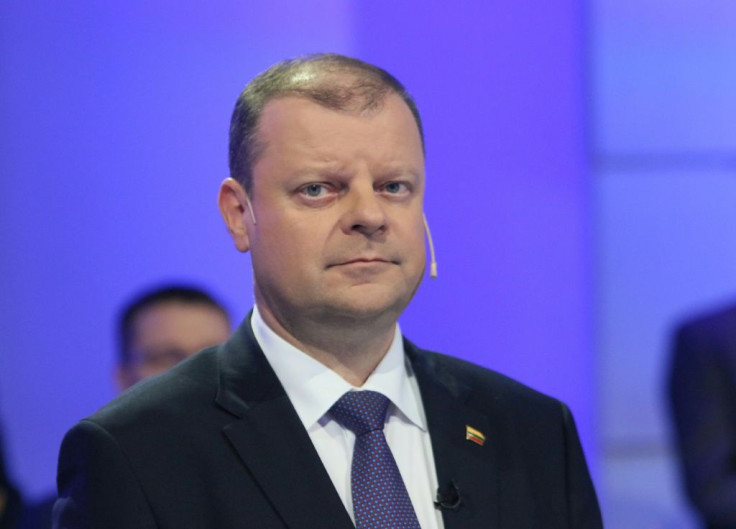Lithuania Shuts Borders To Foreign Visitors As Balts Expand Virus Fight

Lithuania said Saturday it would shut its borders to most foreign visitors while fellow Baltic EU members Estonia and Latvia imposed security measures of their own to stem the spread of the novel coronavirus.
Lithuanian Prime Minister Saulius Skvernelis said the country of 2.8 million people has decided to reinstate checks on its borders with Latvia and Poland, becoming the fifth nation to do so within the bloc's zone of free travel.
Foreigners will be banned from entering the country starting 1000 GMT on Sunday, with the exception of individuals with a residence permit, diplomatic workers and NATO troops.
Freight transport will not be affected, he added.
"Our goal is to delay the spread of the virus as long as possible inside the country and to reduce the negative consequences," Skvernelis said.
Lithuania, which has eight confirmed COVID-19 cases, has been on partial lockdown since Friday after the government shut down all schools, kindergartens and universities and banned large public events.
From Monday, the ban will also cover most shops, restaurants and pubs, although food delivery will be allowed. The measure does not concern grocery stores and pharmacies.
Skvernelis said his cabinet will approve an economic stimulus plan on Monday worth "at least one billion euros".
Fellow Baltic states Estonia and Latvia also imposed movement restrictions on Saturday but stopped short of border shutdown.
Latvia, which has a population of 1.9 million people and 26 confirmed cases of the coronavirus, said it will suspend all international flights, ferries, buses and trains from Monday.
"Border crossings by private car will continue, as well as international freight and cargo flow," Latvian Transport Minister Talis Linkaits told reporters.
Estonia, the northernmost Baltic state with 1.3 million people and 115 confirmed cases of COVID-19, banned travel to six of its islands for all but their permanent residents.
The government also decided to close down all leisure centres, sports clubs, spas and swimming pools.
Most of the measures will apply for a couple of weeks but will likely be prolonged according to Baltic authorities.
© Copyright AFP {{Year}}. All rights reserved.





















